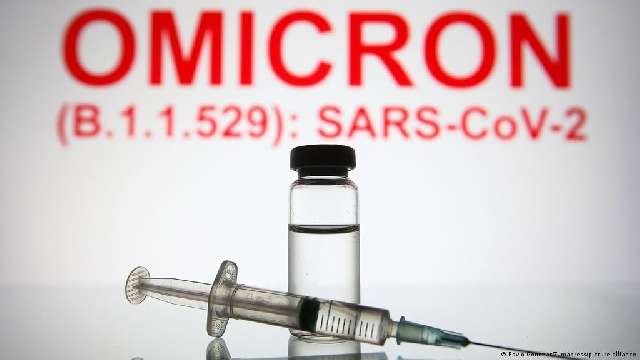Covid: Omicron spreading at unprecedented rate – WHO
 Omicron variant
Omicron variant
The new coronavirus variant Omicron is spreading across the globe at an unprecedented rate, the World Health Organization (WHO) has warned
Cases of the heavily mutated variant have been confirmed in 77 countries.
But at a press conference, WHO chief Tedros Adhanom Ghebreyesus said it was probably in many others that had yet to detect it.
Dr Tedros said he was concerned that not enough was being done to tackle the variant.
"Surely, we have learned by now that we underestimate this virus at our peril. Even if Omicron does cause less severe disease, the sheer number of cases could once again overwhelm unprepared health systems," he said.
The Omicron variant was first identified in South Africa in November, and the country has since seen a surge in infections. President Cyril Ramaphosa has tested positive for Covid-19, and is currently isolating with mild symptoms.
A number of countries have introduced travel bans affecting South Africa and its neighbours following the emergence of Omicron, but this has failed to stop it from spreading around the world.
In other developments, More than 800,000 Americans have now died from the coronavirus - the highest recorded national death toll from the global pandemic
UK Prime Minister Boris Johnson won backing for Covid passes in England, despite the biggest revolt by members of his party since he became PM
The UK government also announced on Tuesday that all 11 countries on its travel red list would be taken off, with Health Secretary Sajid Javid saying the Omnicron variant had spread so widely the rules no longer had much purpose.
Italy has extended a state of emergency until 31 March 2022, citing concerns over Omnicron. The measures, which were due to expire at the end of December, give the government more power to limit travel and public gatherings
The Netherlands says it will close primary schools a week before the Christmas holidays are due to start, in a pre-emptive bid to tackle infections
Norway has also announced a ban on serving alcohol in bars and restaurants, among other measures
In the press conference on Tuesday, Dr Tedros reiterated concerns about vaccine inequity, as some countries accelerate rollouts of a booster shot in response to Omicron.
Recent studies of the Pfizer/BioNTech vaccine showed it produced far fewer neutralising antibodies against Omicron than against the original strain, but that this deficit could be reversed by a third, booster, jab.
Dr Tedros said boosters "could play an important role" in curbing the spread of Covid-19, but that it was "a question of prioritisation".
"The order matters. Giving boosters to groups at low risk of severe disease or death simply endangers the lives of those at high risk who are still waiting for their primary doses because of supply constraints," he said.
Supplies to the global vaccine-sharing programme Covax have increased in recent months. But world health officials fear a repeat of a shortfall of tens of millions of doses which occurred in the middle of this year, partly as a result of India suspending exports during a surge in cases there.
In poorer countries, some vulnerable people are yet to receive a single dose.
Source: BBC
Trending World

Trump says US will keep or sell oil seized from Venezuela
17:32
Gunmen abduct 28 Muslim travellers in central Nigeria
16:01
US conducting surveillance flights over Nigeria after Trump intervention threat
04:25
UN experts urge Iran to stop execution of woman activist
17:30
US economy grows at fastest pace in two years
18:28
Brazil's Supreme Court allows Bolsonaro to leave prison for surgery
18:26
Chronic water shortages dampen holiday mood in Tanzania's biggest city
18:21
Libya's army chief killed in air crash in Turkey
13:04
Venezuela accuses US of 'extortion' over seizure of oil tankers
12:21
9 arrested in Italy for allegedly raising millions for Hamas
00:08




